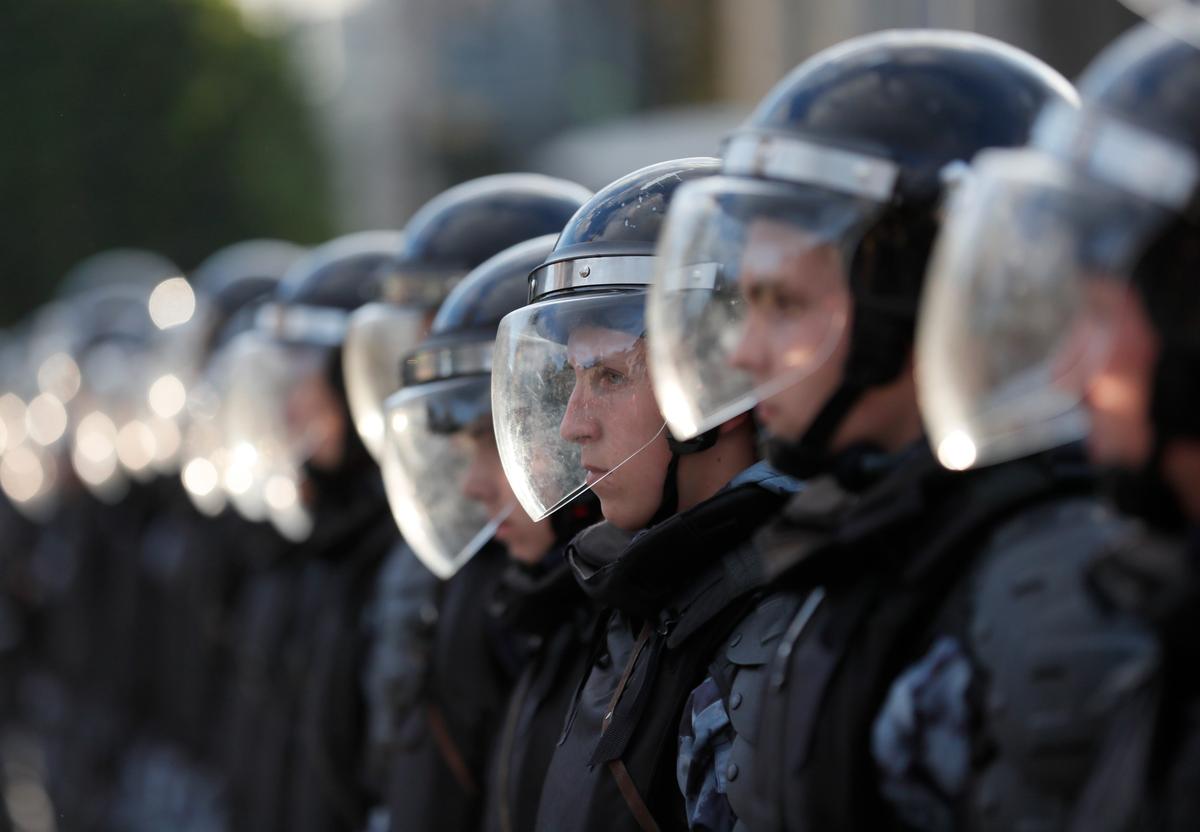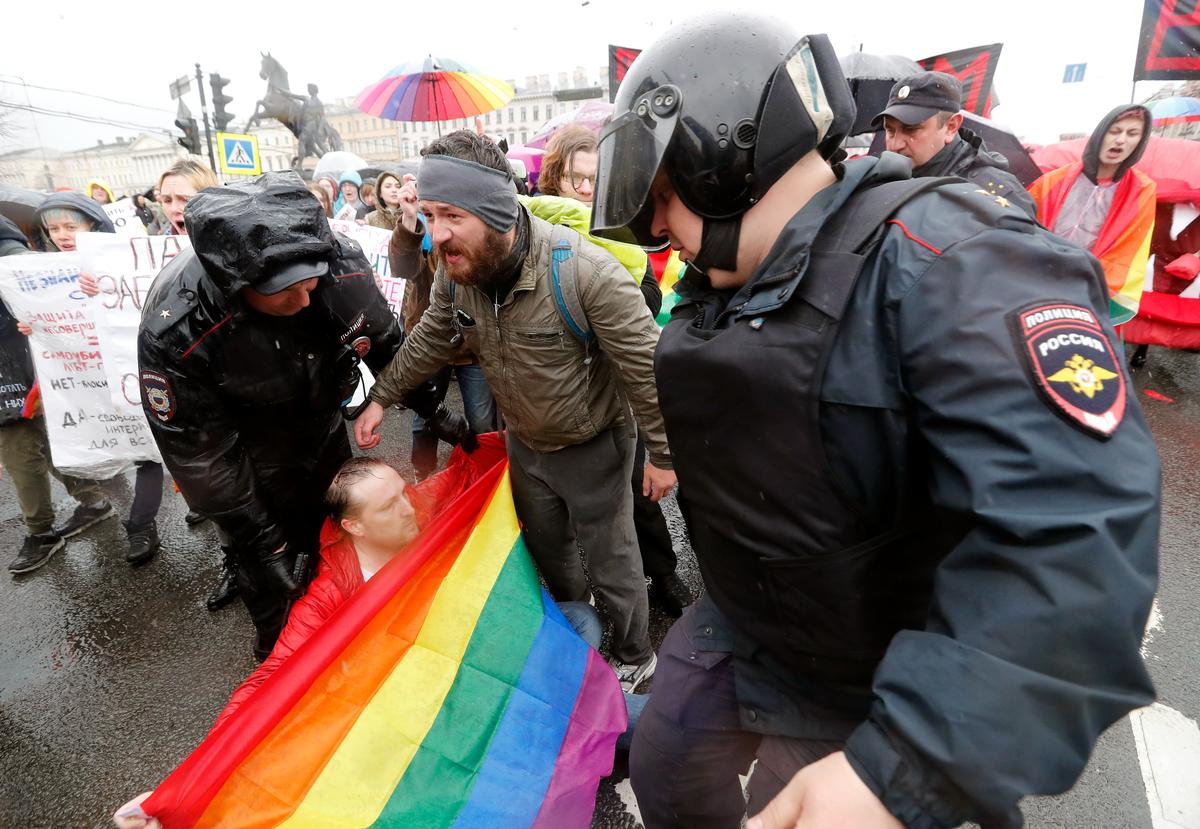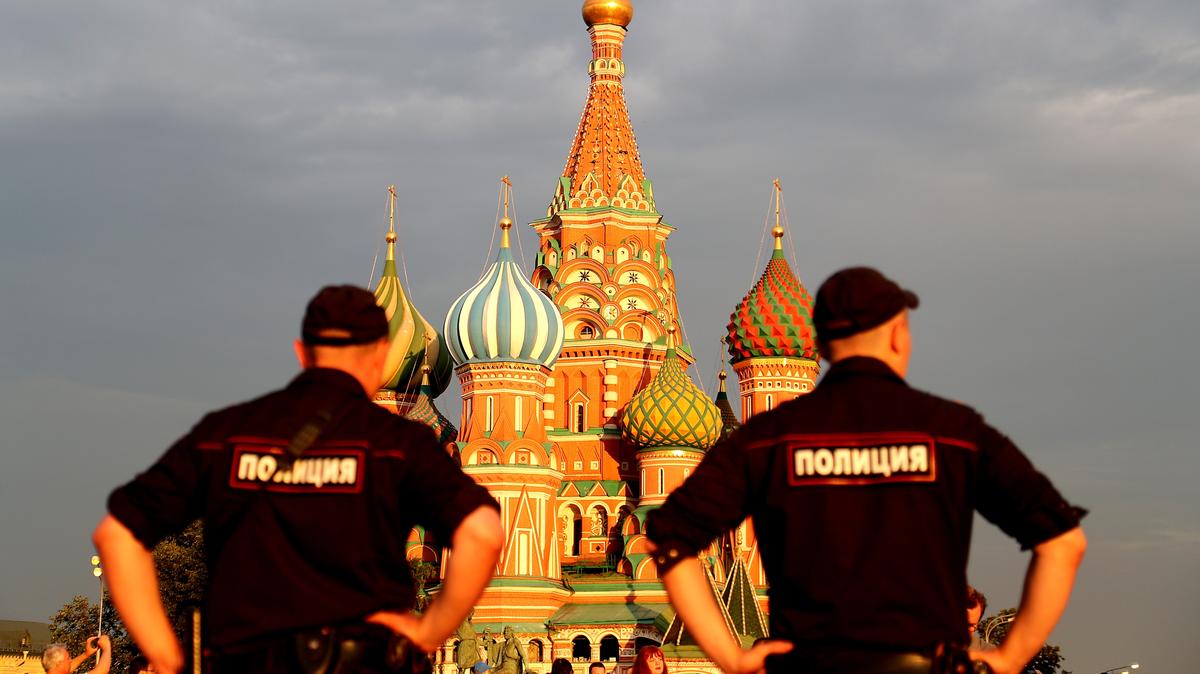Russia’s Interior Ministry announced plans to task the Russian police force with enforcing public morality last week, a bucket list item for those who self-identify as “patriots”. While the morality police exists in just a handful of repressive Muslim nations today, their impact on the societies they regulate is nevertheless considerable.
A draft presidential decree posted by the Interior Ministry on the official government portal last week grants the police powers to “preserve and strengthen traditional moral and spiritual values” in Russian citizens as well as foreigners in the country. After a 15-day period for “public discussion” of the decree, Putin will decide whether or not to issue the decree at the end of the month.
A plan approved by the Russian government on 1 July to implement a state policy aimed at preserving and strengthening traditional Russian spiritual and moral values over the next two years 2024-2026, is cited as the basis for the decree, which contains a clause handing law enforcement agencies additional powers to enforce Putin’s personal understanding of what exactly “traditional values” entail.
The plan for enforcing traditional values, which Putin first approved in November 2022, is couched in a cumbersome officialese that leaves many of its proposals unclear, though it is unambiguous in its commitment to establishing a system to police public morality and ideology, despite that being something specifically prohibited by the Russian constitution.
The plan also unsurprisingly awards Orthodoxy a “special role in establishing and strengthening traditional values”.
The plan did at least provide a comprehensive list of Russian “traditional values”, which it names as “Life, dignity, human rights and freedoms, patriotism, civic spirit, serving the Fatherland and taking responsibility for its destiny, high moral ideals, a strong family, creative work, the priority of the spiritual over the material, humanism, mercy, fairness, collectivism, mutual assistance and mutual respect, historical memory and generational continuity, and the unity of the peoples of Russia”. Although it is hard to see how human rights and freedoms or humanism can be combined with the priority of the spiritual over the material or collectivism.
Indeed, the head of the Russian Orthodox Church, Patriarch Kirill, a key exponent of the so-called “Russian world” and its ultraconservative code, has in the past described human rights and humanism as “a global heresy of human worship” from which the Orthodox church required protection. The plan also unsurprisingly awards Orthodoxy a “special role in establishing and strengthening traditional values”.
Perhaps more telling is the part of the plan in which the various entities threatening “traditional values” in Russia are revealed. These include unnamed extremist and terrorist organisations, certain media bodies, the actions of the United States of America and other unfriendly foreign nations, a number of transnational corporations and foreign non-commercial organisations, as well as the catch all “activity of certain organisations and persons in Russia” leaving plenty of scope for the painting of enemies.
According to the document, these evil forces are dangerous as they seek to “impose a system of ideas and values” that are “alien to the Russian people and destructive to Russian society, such as the cultivation of egoism, permissiveness and immorality”.

Russian riot police block a street in the centre of Moscow, 10 August 2019. Photo: EPA-EFE / YURI KOCHETKOV
The forces all apparently reject “the ideals of patriotism, service to the motherland, the natural continuation of life, the values of a strong family, marriage, having multiple children, and Russia’s positive contribution to world history and culture”, as well, of course, “to destroy the traditional family by promoting non-traditional sexual relations,” the preferred official term for describing any non-heterosexual relationship.
Used as a blanket term to denote any kind of sex that makes the Kremlin uncomfortable, “non-traditional sexual relations” features heavily in both Russia’s administrative and criminal codes, and the term itself appears in a number of laws, which is concerning as it hasn’t been defined anywhere, as if its meaning were universally obvious.
Homosexual behaviour is mentioned frequently in Russia’s historical record, particularly in religious documents such as the Hundred Chapters, written in 1551, which recognised how widespread the “wicked sin of sodomy” had become in Muscovy at the time. Indeed, heterosexual acts carried out in pursuit of pleasure rather than procreation were historically also referred to as sodomy in Russia.
Kirill has previously acknowledged his sympathy for the Islamic tradition, which he said “stands firm on dogma — the basis of morality — and looks in alarm at the religious life of the West”.
But how is the “moral control” the Russian police hopes to exercise over the Russian population enforced in other countries with similar structures? Of course, in democratic countries, most of which the Russian government now classifies as “unfriendly”, issues of morality remain for the individual to grapple with in private, and remain outside the purview of the modern nation state, which only enters the equation when crimes or misdemeanours are involved, things that the Russian authorities have always kept a close eye on in any case.
Centuries before the separation of church and state, in much of mediaeval Europe the role of the morality police fell to the Inquisition, which focused its considerable energies on uncovering crimes such as heresy, blasphemy and witchcraft. Similar structures can nowadays only be found in a few countries where the most fundamentalist forms of Islam are practised, such as Saudi Arabia, Iran and Afghanistan, the latter of which has been under Taliban rule again since 2021, and which the Russian government has declared to be both a terrorist and a friendly organisation.

Police officers detain an LGBT activist during a protest in St. Petersburg, 1 May 2018. Photo: EPA-EFE / ANATOLY MALTSEV
In a recent book by Patriarch Kirill, the ultraconservative head of the Russian Orthodox Church called for a “system of moral and spiritual coordinates common for the Orthodox church and Islam” to be introduced throughout the Russian education system, from preschool to university.
Kirill has previously acknowledged his sympathy for the Islamic tradition, which he said “stands firm on dogma — the basis of morality — and looks in alarm at the religious life of the West”.
Islamic laws are indeed very traditional, and have not changed in 14 centuries. The Quran prescribes the death penalty for many crimes, and recommends punishing thieves by cutting off their hands, while men who are unfaithful to their wives should receive 100 lashes of the whip.
The new role envisaged for Russia’s Interior Ministry in “enforcing virtue and combatting sin”, will allow Russia, which has now bricked up Peter the Great’s so-called “window on Europe”, to share the traditional Sharia values that have proved to be so effective in so many of the countries that the Kremlin counts among its closest friends.

